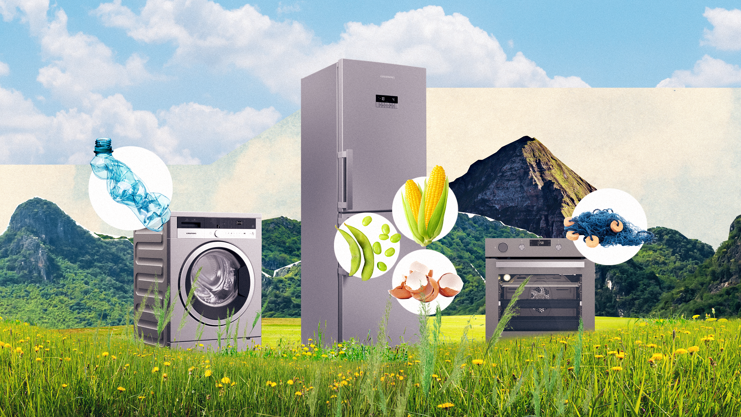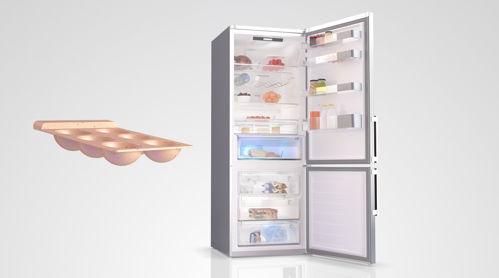Adopting a Circularity Perspective
As time goes by, the environmentally conscious customer profile becomes more prominent. Consumers feel personal responsibility in helping to address the environmental global challenges. In fact, a recent report by ING shows that 83% of consumers think their own behavior and choices can have a positive impact on addressing global environmental challenges. Adding to this, 49% of consumers are also willing to spend more on a product if they were assured that it was made in an environmentally friendly way. The findings of the study are the result of a survey of 15,000 people in 11 countries.
A survey by Accenture, which collected 6,000 responses, also observes this shifting demand, which claims that while consumers remain predominantly focused on quality and price, 83% believe that it’s important or extremely important for companies to design products that are meant to be reused or recycled. 72% of respondents said they are currently buying more environmentally friendly products than they were five years ago, and 81% said they expect to buy more over the next five years. %50 of respondents would pay more a product if it were designed to be reused or recycled.
Transitioning to a circular economy can represent a multi-trillion opportunity for businesses. Changing consumer needs will be a driving force behind this transition.

Arçelik: This is not waste, this is an innovative product
We believe that purpose-driven organizations will have a central role to play in building a more sustainable future for business. That is why we are committed to creating value through our purpose-driven technologies, products and services that make efficient use of resources and create circular solutions. We do not see waste as waste; instead, we are developing more reuse, recycle and upcycle schemes and preventing environmental leakage.
We are investing in R&D for sustainable products, collaborating with stakeholders including businesses in and out of our sector, universities, and NGOs to oversee this transition. Our investment in R&D has begun to pay off, and some of the resulting innovations have begun serial production.
Our washing machine with synthetic microfiber filtration system, which blocks up to 90% of microfibers from entering the water source, is an example of that. Our efforts continue to extend the life cycle of the filtration system, which is itself produced from 100% recyclable material.

The circularity approach is also manifested in our Bio Fridge. Through the BIO4SELF Project, part of EU Horizon 2020, Arçelik develops all-biological Polylactic Acid (PLA) plastics with high temperature and degradation resistance, using biomaterials such as sugar cane, corn, soybean and eggshell. With each Bio Fridge we are producing, a total of 6 kg of CO2 emissions is prevented thanks to the use of bioplastics and Bio-Cool.
By using Leopet plastic raw material in the production of washing machine and washer-dryer tubs, approximately 30 million PET bottles have been recycled and prevented from ending up at the landfill. Through the use of Leopet in air-conditioners, another 300,000 PET bottles have been recycled.
Arçelik increased use of recycled plastics by using recycled polypropylene (PP) for detergent drawers, pump filters in the washing machines, and vacuum cleaners. Serial production of the parts has already started in 2019 and now the efforts are focused on the production of the large detergent drawers made from recycled PP. The serial production of the vacuum cleaner model has started in early 2020. As of today, this model uses a total of 41,624 kg of recycled plastic raw materials in a total of 43,000 units belonging to Arçelik, Beko and Grundig brands.
By recycling fishing nets together with textile waste and waste synthetic yarns, Arçelik produces a nylon-based composite material (PA) with high mechanical strength and thermal resistance. In 2019, 7.1 tons of waste fishing nets, textiles and synthetic yarns were recycled and used in oven parts. Since 2020, material usage has been extended to cover also washing machines and dishwashers. As of today, a total of 37.5 tons were recycled in these three product categories.
Through our Defy brand, we developed a solar panel refrigerator to respond to the needs of people who live far away from power grids and cities. By eliminating the need of batteries and inverters, the product becomes affordable and thus responds to the local need in these areas. This project primarily targets the Sub-Saharan Africa, in addition to other regions where there are often power-cuts due to poor power grid conditions and markets where energy is expensive.
As a company with global footprint, we made it our mission to do everything within our power in the fight against environmental degradation and, we remain committed to building a circular business model, in line with the changing customer sentiment.

 EN
EN  TR
TR
Adopting a Circularity Perspective
Share